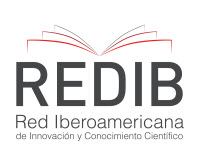Corpo heroico, ideal flaviano: uma leitura da Argonáutica de Valério Flaco
DOI:
https://doi.org/10.14393/artc-v21-n38-2019-50160Palavras-chave:
Argonáutica, Valério flaco, corpo heroicoResumo
Neste artigo, interpretam-se as representações corporais heroicas da Argonáutica de Valério flaco para, em seguida, localizá-las politicamente no recém-iniciado Principado de Vespasiano. Primeiramente, apresentam-se as contribuições que o exame do gênero épico mitológico, especialmente dos seus componentes factuais e ficcionais, oferece para a Epistemologia histórica. Em seguida, investigam e analisam-se os aspectos mitopoéticos relacionados ao corpo heroico flaquiano, a partir do espírito agônico e emulativo da tradição literária na antiguidade clássica. constata-se que a construção do herói feita por flaco, bem como da sua dimensão corporal, está assentada primeiramente sobre virtudes atléticas e bélicas, além de expansionistas, como a audácia, a honra, a fama e a glória. assim, flaco atualiza o herói épico ao contexto de emergência dos flávios, no qual era esperada a ênfase na habilidade militar, uma vez que a atual governança havia ascendido pelo domínio dessa aptidão. Finalmente, conclui-se que a épica flaquiana e o ideal heroico de Jasão, em especial, aludem e promovem o novo regime e a recém-fundada dinastia.
Downloads
Referências
BACHELARD, Gaston. A epistemologia. Lisboa: Ed. 70, 2006.
BACHELARD, Gaston. A formação do espírito científico. Rio de Janeiro: Contraponto, 1996.
BELTON, James Hampton (ed.). An encyclopedia of ancient Greek and Roman mythology. New York: Guttenberg, 2009.
BETTINI, Maurizio. As reescritas do mito. In: CAVALLO, Guglielmo, FIDELI, Paolo e GIARDINA, Andrea (org.). O espaço literário da Roma Antiga. A produção do texto. Belo Horizonte: Tessitura, 2010, v. 1.
CAMPBELL, Joseph. O herói de mil faces. São Paulo: Cultrix, 1949.
CHADWICK, John. The Mycenaean world. New York: Cambridge University, 1999.
DIXON, Peter. Rhetoric. London: Methuen, 1971.
DOMINIK, William John. Monarchal power and imperial politics in Statius. Thebaid. Ramus, Cambridge, v. 18, issue 1-2, 1989.
FLORES, Guilherme Gontijo. Épica, lírica e tragédia nas Argonautica de Apolônio de Rodes. Organon, Porto Alegre, n. 49, 2010.
GOUVÊA JÚNIOR, Márcio Meirelles. O herói das argonáuticas latinas. Em tese, v. 12, 2008.
HEEHS, Peter. Myth, history, and theory. History and theory, Middletown, v. 33, n. 1, 1994.
HUNTER, R. L. ‘Short on Heroics’: Jason in the Argonautica. The Classical Quarterly, Cambridge, v. 38, n. 2, 1988.
JONES, Brian W. The Emperor Titus. New York: St. Martin’s, 1984.
MARCH, Jenny. Cassell's dictionary of classical mythology. London: Cassell & CO, 2001.
MANUWALD, Gesine e VOIGT, Astrid (ed.). Flavian epic interactions. Berlin: De Gruyter, 2013.
MCGRATH, Sean. Valerius Flaccus’ Argonautica: Flavian propaganda, or covert inspiration for Republic-minded elites? Lexington: Modern and Classical Languages, Literatures and Cultures Department, University of Kentucky, 2014.
NEWLANDS, Carole E. Statius’ Silvae and the poetics of Empire. Cambridge: Cambridge University, 2002.
PORTELA FILHO, Raimundo Nonato Araujo. A epistemologia histórica de Gaston Bachelard. Pesquisa em Foco: Educação e Filosofia, São Luís, v. 3, n. 3, a. 3, 2010.
REBOUL, Olivier. Introdução à retórica. São Paulo: Martins Fontes, 2004.
SILVA, Camilla Ferreira Paulino da. A construção da imagem de Otávio, Cleópatra e Marco Antônio entre moedas e poemas (44 a 27 a.C.). Dissertação (Mestrado em História) – Centro de Ciências Humanas e Naturais-Ufes, Vitória, 2014.
STARK, Caroline. A Companion to Latin Epic, ca. 14-96 CE. Manuscrito em contrato com a Wiley-Blackwell cedido pelo autor, 2015.
STOVER, Tim. Epic and Empire in Vespasianic Rome: a new reading of Valerius Flaccus’ Argonautica. Oxford: Oxford University, 2012.
TESSER, Gelson João. Principais linhas epistemológicas contemporâneas. Educar em Revista, Curitiba, n. 10, 1994.
VASTA, Michael, op. cit., JONES, Brian W. The emperor Domitian. New York: Routledge, 1992.
ZISSOS, Andrew. Valerius Flaccus. In: FOLEY, John Miles (ed.). A companion to ancient epic. Oxford: Blackwell, 2005.
Downloads
Publicado
Edição
Seção
Licença
Autores que publicam nesta revista concordam com os seguintes termos da licença Creative Commons, adotada a partir da ArtCultura, v. 21, n. 39 (jul.-dez. 2019).
CC BY-NC-ND 4.0: o artigo pode ser copiado e redistribuído em qualquer suporte ou formato. Os créditos devem ser dados ao autor original e mudanças no texto devem ser indicadas. O artigo não pode ser usado para fins comerciais. Caso o artigo seja remixado, transformado ou algo novo for criado a partir dele, ele não pode ser distribuído.
Autores têm autorização para assumir contratos adicionais separadamente, para distribuição não exclusiva da versão do trabalho publicada nesta revista (ex.: publicar em repositório institucional ou como capítulo de livro), com reconhecimento de autoria e publicação inicial nesta revista.












